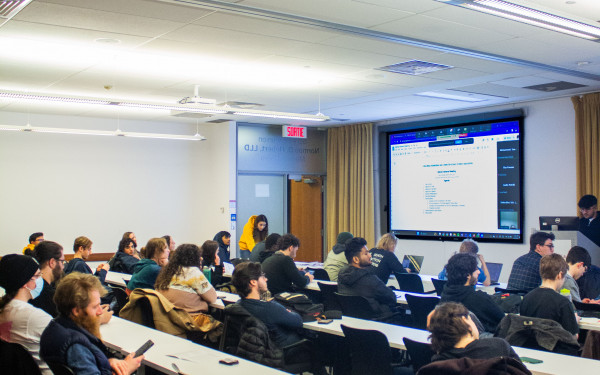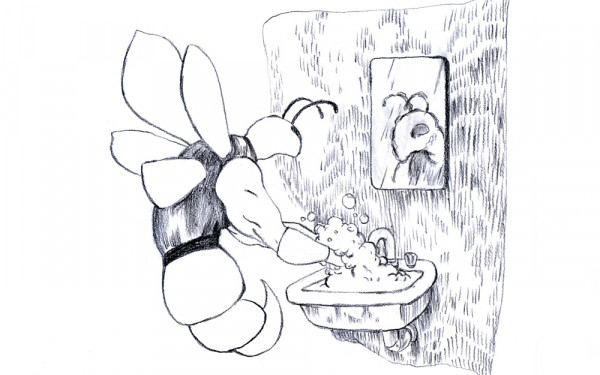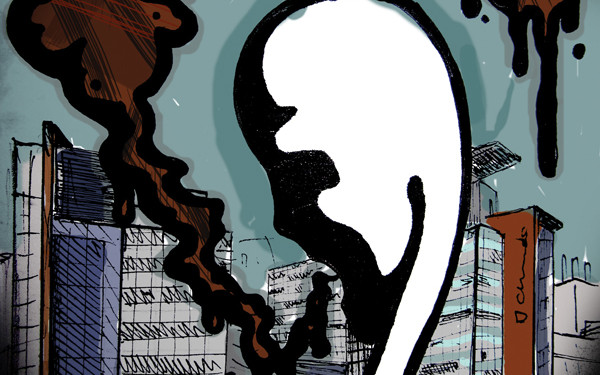Concordia’s Global Engineering Week to Discuss Sustainable Approaches to Engineering
With a name that conjures up images of globetrotting engineers bringing infrastructure to impoverished nations, one might imagine a week of events organized by Concordia’s chapter of Engineers Without Borders to be composed of lectures and seminars about engineering in developing countries.
But Ryan Sequeira, a member of EWB Concordia, says this is only part of what Global Engineering Week—which will take place from March 10 to March 14—is about.
“‘Global engineering is not simply taking conventional engineering practices of the West and exporting it to developing countries,” he said. “Rather, global engineering is an attitude to engineering projects in a more holistic sense.”
In examining engineering projects through more than just the financial and technical aspects, the concept of global engineering can offer an environmentally sustainable and socially responsible alternative to conventional practice.
“In the framework of conventional engineering, one simply analyzes the financial cost of a project, determines if it’s feasible, and carries it out,” said Sequeira. “To give an example, with conventional engineering you would go to a river-based community needing a bridge, build it as cheaply as possible, and get out quickly.
“In global engineering, you don’t just build a bridge and forget about it,” he continued. “You calculate its impact on the people using it as well as the local environment. One could just as easily call it social impact engineering—gauging the social effects of engineering projects.”
According to Sequeira, global engineering is in “very much the same mindset” as the now-popular idea of the “triple-bottom line” that involves calculating the social benefits and environmental impacts of a project in addition to its financial viability.
“As engineers, we are tasked with building the future, the machines and infrastructure humanity uses to realize its dreams. Therefore, we have a responsibility to think long-term and holistically,” he said.
“We need a different kind of long-term thinking, one that considers more than just the life cycle of the object being built.”
Getting engineering students to think differently is the underlying goal of Global Engineering Week, Sequeira said.
“Engineers today have plenty of room to adopt more socially and environmentally conscious practices,” he added.
The week of lectures, discussion panels and seminars is also about facilitating exchanges of ideas across disciplinary lines.
“We would like to have social scientists and people in the humanities speaking with engineers,” Sequeira said. “Operating in the understanding that every engineering project impacts society, we at EWB believe there’s space for far more dialogue between the two disciplines.”
According to Sequeira, there’s room for improvement in the engineering curriculum at Concordia so as to give students the opportunity to “study the social and environmental sciences more deeply.”
“The engineering curriculum has so many difficult courses [that] the engineering students don’t have the chance to explore these disciplines,” Sequeira said. “In order to carry out these changes, we would like to work with the university’s administration to augment the engineering curriculum.
“With a more holistic curriculum, engineering students will have the chance to engage with society on more than just a technical level,” he added.
There will be an interactive exhibit in the EV building’s atrium for Global Engineering Week. Running from 10 a.m. to 4 p.m. throughout the week, it will consist of “an interactive series of case studies and ‘choose your own adventure’-style games.”
Other notable events include a seminar with former Canadian astronaut and current Liberal MP Marc Garneau on March 12. He will speak about the role of scientists and engineers in the Canadian government.
The week will end with a wine-and-cheese event on March 14, at which EWB Concordia will give an award “to a distinguished professor who best incorporates global engineering into their teaching,” Sequeira said.
George Roter and Parker Mitchell, two engineering graduates from the University of Waterloo, founded EWB Canada in 2000. A registered charity, it is focused on finding solutions to extreme poverty, especially in rural Africa, through the practice of sustainable development.

_900_597_90.jpg)


1_600_375_90_s_c1.jpg)


